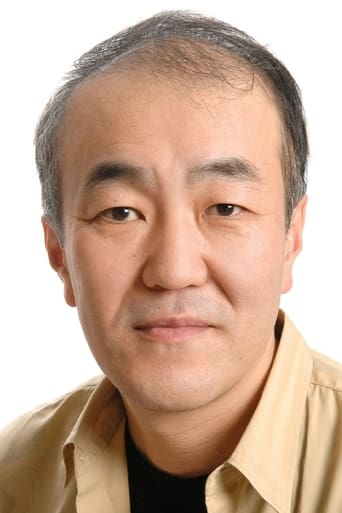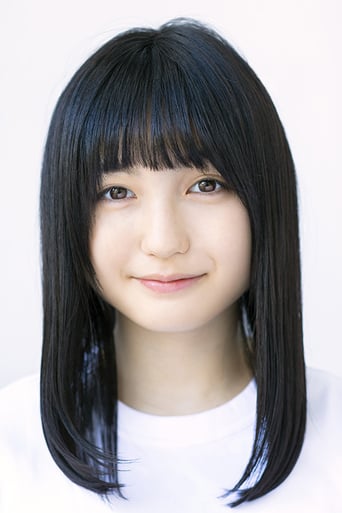Steineded
How sad is this?
Acensbart
Excellent but underrated film
KnotStronger
This is a must-see and one of the best documentaries - and films - of this year.
Deanna
There are moments in this movie where the great movie it could've been peek out... They're fleeting, here, but they're worth savoring, and they happen often enough to make it worth your while.
Bliss Quest
Beautiful, poetic, ethereal. I started watching this late one night, and called it quits in the middle (from fatigue, not boredom), and the main character appeared in my dream. Get this, when I awoke early the following morning, I immediately returned to complete the film, went back to sleep after, and dreamed about the main character again. This would usually happen if I had left the film on and dozed off, but that was not the case. It was off. The beauty of the experience of watching this film was soo great that it permeated my dreams. And that's all I have to say about this gem.
Reno Rangan
I've already mentioned several times for such films I've come across that they are true art, a motion art, with an audio commentary. The 110 minutes of pleasure, where man and nature connect. I did not move for a second, and at the end, I felt it was too short. But I'm not expecting the same result from anybody else who give it a try. Since from a person to person, the taste and anticipation vary.Despite it came a couple of years ago, I was very impressed with the recent films like 'Midnight Diner' and 'Sweet Bean' which led me to this flick. This film is not just about the food, but also about farming and other related things. From the fresh perspective about our food. The food we make and its root.The nature provided us food for the past 200 thousand plus years. Full of natural and nutritional. But the art of preparing our own food using those items was not that ancient. As the time passed by, we the humans discovered many new ingredients and methods to make very healthy food by removing unwanted parts. From untasty natural food to tasty cooked food. We developed such skill over thousands of years. There are unhealthy foods too, like perhaps sugary, oily and fried items.Everybody has to eat, so everybody knows to make at least one dish. It could be just bread and jam for some. Why I'm saying all this! Because the people from the cities use most the ready to use ingredients. Even in the off the season they get what they want. Those were preserved using the chemicals, which's bad for health. That's one of the highlights of this film. How to make your own from using naturally available items around you. And to prepare the food according to the season.❝Cooking is a mirror that reflects your mind.❞Very inspiring. Makes us to see carefully what we're eating. Besides, there are experimental cookings, as well as myth buster. The difference between someone expert and ours cooking. The taste and methods. Most importantly the assumption that we think the dish is our family's or the local or the nation's, but the time will come you to learn the truth. Maybe because as a kid, we had believed everything what the elders had said to us, while making fun out of us.The details were awesome. More like you are watching a documentary film. The majority of the film was a background narration like a documentary film. When the direct dialogues between the characters appeared occasionally, it was like the narration shifting its phase. Such change was good, particularly moving on to other topics.It was based on the manga of the same name, and from the genre called slice of life. Truly a perfect, most realistic slice of a rural Japanese life. This is the first part of two films called 'Summer/Autumn'. The other one called 'Winter/Spring'. The story begins at the end of the spring during still the atmosphere was foggy and the lands are wet, when it is a good time to cultivate the rice. The next half are the summer, maintaining the crops and following the harvest takes place.In between these periods, there are many sub topics, the topics about each dish that prepared according to the season and availability of the items, I mean the seasonal ingredients in a remote place of Japan called Little Forest. If you are a food lover, you will be mouthwatering for several times in your watch. But there's no detail on how they are prepared like that shown in any cooking programmes. If you are good at cooking, luckily you would get most of the procedures.The actress was brilliant. The locations were amazing. For every few minutes the film picks a topic in the form of a new dish and makes progress on that. So the lead character, Ichiko, was like a mystery. But as the story goes on, reveals enough about her to us. I'm expecting more in the next part, as seeing how the film had ended. I meant the final scene that gave a fresh hint about some earlier life events of hers.She was alone, and that's the best part of this story. Because everything she said were directly to us. Not that two people having a conversation. Besides, cooking for two or two plus are always hefty job. Sometimes the life will be very joyous when you live by yourself. I mean not for the entire life, but for some period, like when you are set to discover yourself. On that aspect, in many ways the film boosts our confidence to go for what we desire to do in our life.There's no story in it. You should not expect one. As I said earlier, it was a semi-documentary and all you would witness are like the real life, real thing. The nature documentaries are always best, but while watching it, I thought this flick was much better than those. You know, most of the todays nature documentaries are not truthful. If they see a lion wondering, they run out of patience and put a zebra, so they can capture a most magnificent lion hunting a zebra.This is not a BBC, Nation Geography or a History Channel programme, but you can compare it to that level. Except it was all pre-planned. Cooking, farming, culture and the nature, this film was a whole pack. All in one as what those TV channels produces. Not a history, but as I said in the very first paragraph, an art. This is not like a must see film, but ignoring it even after learning about it will be a mistake, especially if you are a film fanatic or a Japanophile.9/10
phoenix 2
I've got mixed feelings about this one. Although it was beautiful, for a story as a whole it wasn't much. The plot dragged through the two films in snail pace, with the story being revealed too slowly. There is some depth in it, with the girl finally revealing us that her mother left her five years ago. And there is more to it, if the film had made a better presentation of the girl's relationship with her mother. Also, it would have been good if the movie focused a little on the reasons why she left the city to come back to her farm house, or why she left the farm house in the first place. But maybe the second film gives a clearer view on the matter. Other than that, the film focuses on the connection between nature, agriculture and cooking. The sceneries are beautiful, as well as the cinematography regarding the cooking process. I guess you can say that the performance of the leading lady was good, though she didn't have much to work with. So, 5 out of 10.
KFL
This is a rather odd review I'm writing. I rate this 9/10, which means I absolutely will be watching it again; but I'm not sure I can recommend it to a general audience, particularly a Western, city- centric audience.There is very little by way of a "story" here. What there is instead, is recipes, and tips for growing tomatoes and mustard spinach, and how ducks are used to keep rice paddies healthy, and absolutely breathtaking scenery, and more recipes, and reflections on the life-force of plants, and how to cook akebi properly, and more breathtaking scenery from rural Japan, and occasional hints of a romantic link to a local young man or some familial difficulty, and tips for making jam, ...and more recipes.If you have wondered about the feasibility of living a more nearly self-sufficient life in a rural area, or are curious about such a life in northern Japan, you may find this worthwhile, perhaps even entrancing, possibly even downright mesmerizing. The latter describes my response fairly well.Anyone who thinks rural areas mean bugs and heat and dirty water and no cellphone service, you have just wasted 22 seconds reading this review and certainly will not want to watch even the trailer for this film.






